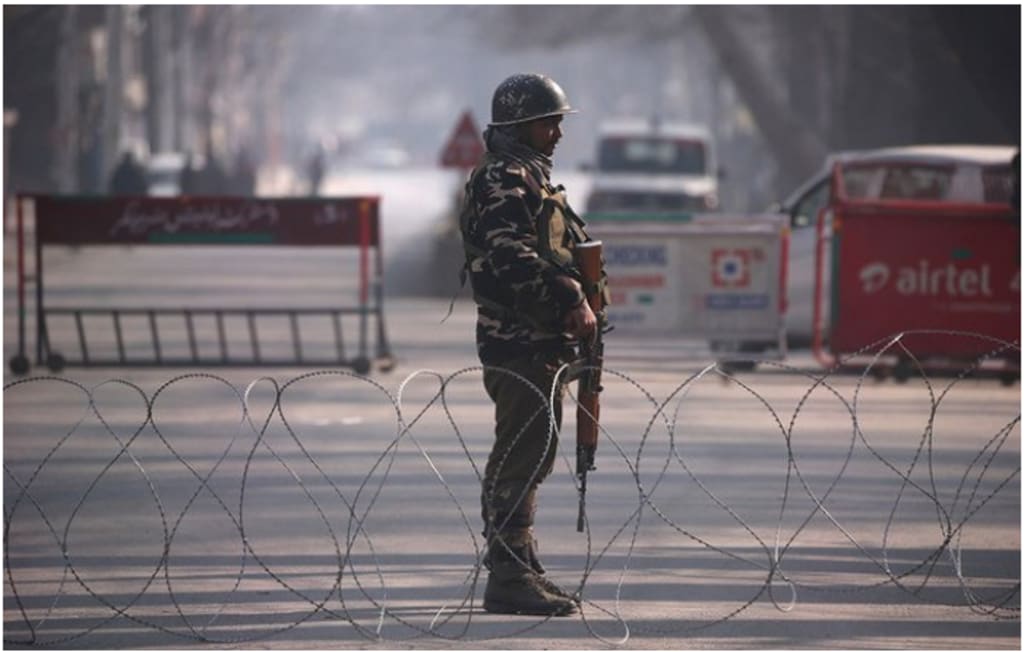The Role of Pakistan and China in Response to India's 5th August 2019 Act on Kashmir
An Analysis of the Implications for Regional Politics and International Relations

India's decision to abrogate Article 370 and bifurcate the state of Jammu and Kashmir into two Union Territories on 5th August 2019 had far-reaching implications for the region, and particularly for Pakistan and China, who have a stake in the dispute over the status of Kashmir. Both countries responded strongly to the act, and their role in the ongoing conflict has significant implications for regional politics and international relations.
The act has also had a significant impact on the economy of the region. The government's decision to impose a curfew and restrict movement has disrupted normal life and severely impacted tourism, which is one of the primary sources of income for the region. The communication blockade and internet shutdown have further compounded the problem, making it difficult for businesses to function and for people to access basic services.
Pakistan, which has long claimed sovereignty over the entire Kashmir region, including the portion administered by India, was quick to condemn the act. The Pakistani government accused India of violating international law and of taking unilateral action that would destabilize the region. Pakistan also downgraded diplomatic ties with India, suspended trade, and expelled the Indian High Commissioner.
Pakistan's response to India's act on Kashmir was not surprising, given that the dispute over the status of Kashmir has been a key issue in the Pakistan-India relationship for decades. Pakistan has provided political and diplomatic support to Kashmiris who oppose Indian rule, and has also been accused of providing material support to militant groups operating in the region. The act has further stoked tensions between the two countries, and raised the risk of a military confrontation.
China, which shares a border with both India and Pakistan and has its own claims in the region, also expressed concern about the act. China has long claimed the Aksai Chin region, which is administered by India, and has also been involved in a border dispute with India. China's response to the act was muted, but it did issue a statement urging India and Pakistan to exercise restraint and resolve the dispute through dialogue.
China's response to the act on Kashmir reflects its broader strategic interests in the region. China has invested heavily in infrastructure projects in Pakistan, including the China-Pakistan Economic Corridor, (CPEC) which passes through Pakistan-administered Kashmir. China is also keen to maintain stability along its border with India and to avoid any escalation of tensions that could impact its economic and strategic interests in the region.
Many analysts have pointed to the revocation of Article 370 as a key factor behind China's attack on Ladakh. China has long viewed the region as strategically important, due to its proximity to China's western border and its location along important trade routes. The revocation of Article 370, which effectively integrated Jammu and Kashmir into the Indian Union, was seen as a direct challenge to China's territorial claims in the region.
China's response was swift and forceful, with the military incursion into Ladakh being just one aspect of its wider strategy to push back against India's assertiveness in the region. China has also sought to build closer ties with Pakistan, which has long been a key ally in its efforts to counterbalance India's influence in South Asia.
In conclusion, the role of Pakistan and China in response to India's act on Kashmir has significant implications for regional politics and international relations. The dispute over the status of Kashmir is a complex and long-standing issue, and any resolution will require a concerted effort by all parties involved. The international community, including the United Nations, has a role to play in facilitating a peaceful resolution to the conflict, and in ensuring that the human rights of the people of Kashmir are protected.
By Shams Ul Qamar from Pakistan Occupied Kashmir.
About the Creator
Shams Ul Qammar
I'm a psyche student who loves raising awareness about mental health. Together we can delve into the world of mental health issues. My responses will be based on my studies. Let's embark on this journey of exploration together!






Comments
There are no comments for this story
Be the first to respond and start the conversation.